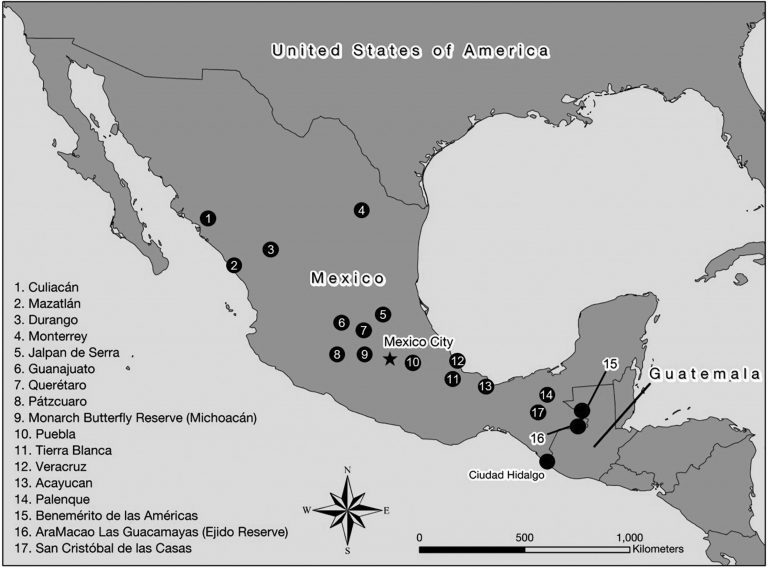
WALKER – NAFTA’s Cartel Economy
Robert Toovey Walker
Article first published online: 25 JUN 2020 Annals of the American Association of Geographers
DOI: 10.1080/24694452.2020.1765727
ABSTRACT: This article combines elements of a personal essay with travel writing, in which geographers have expressed renewed interest. Constructed not through contemplations of the mind but from lived corporeal experience, it reflects both fieldwork discomforts and moments of somatic exhilaration when the mind reacts, producing the epiphany of a new idea or insight. The article follows two researchers who travel through insecure parts of Mexico in an effort to understand how the North American Free Trade Agreement (NAFTA) has affected the Mexican cattle sector and implications for its forest biomes. Land cover change data show a decline in Mexico’s deforestation rate, and the authors hypothesize that agricultural intensification enabled by the neoliberal reforms of NAFTA are responsible. The article starts with a road trip from Culiacán—home of the Sinaloa cartel—and ends in Chiapas, where the Zapatistas rebelled against NAFTA in 1994. At the Guatemalan border they confirm the unchecked flow of about 1.4 million contraband calves from Central America, on their way to Mexican feedlots. The authors estimate that the herd producing this number of animals would require as much as 100,000?km2 of pasture, presumably formed on mostly forested lands. Thus, deforestation in Mexico might be on the decline but only because its post-NAFTA beef supply chain has displaced it elsewhere. The authors reject their hypothesis about agricultural intensification. The article concludes with a speculation about the melding of Mexico’s corporate and criminal organizations into a cartel economy.
Read the full publication at Annals of the American Association of Geographers.